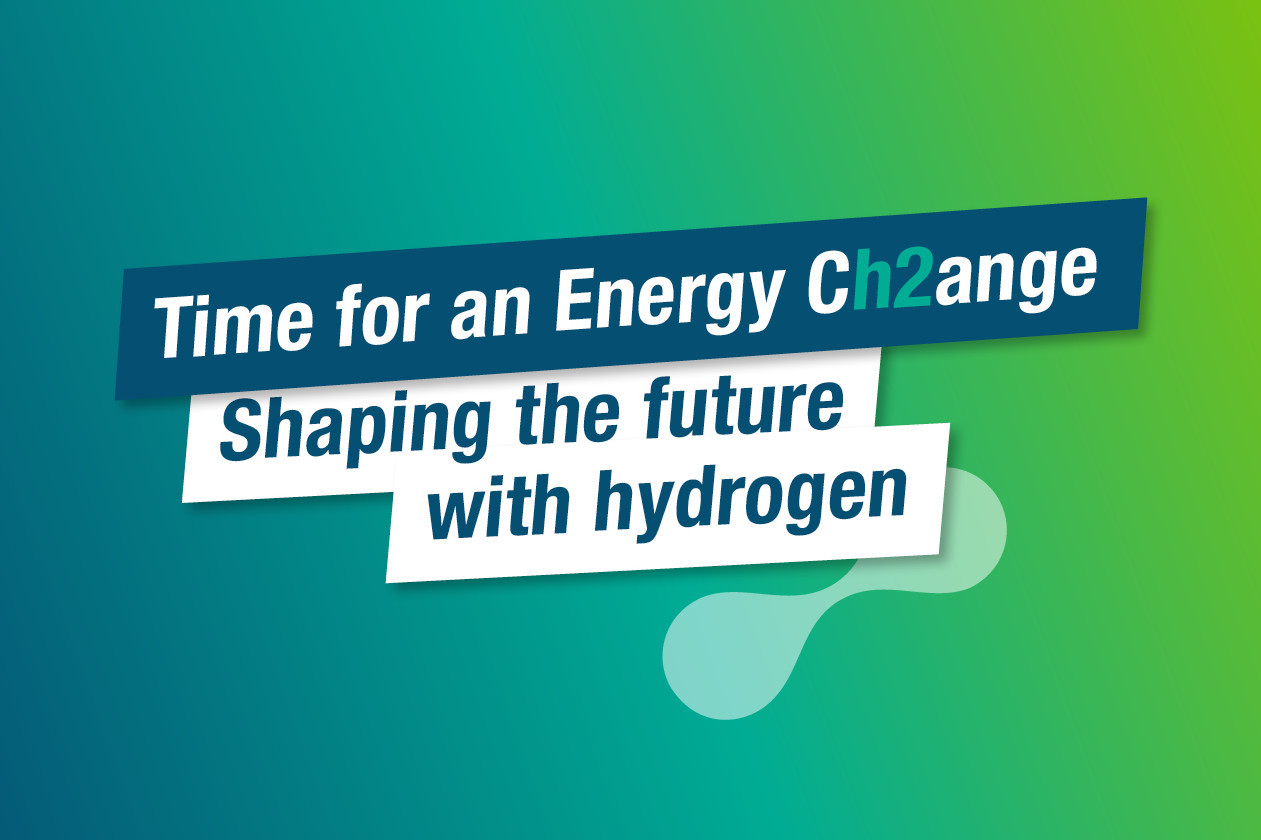

The European Union's plan to achieve climate neutrality by 2050 is ambitious. But the transition to a climate-neutral economy can only succeed if we convert our energy system from fossil fuels to renewable and low-carbon sources. The DVGW is working on this at both the national and international level.
Wind turbines near gas pipelines; © Open Grid Europe
How is the DVGW helping to manage the energy transition?

How can the transformation towards a resilient energy supply with hydrogen and decarbonised gases succeed?
The Green Deal plan has not worked out so far. The big challenge will be to be able to trade hydrogen without restrictions at Europe's borders. To do that, we need standardised definitions for the CO2 footprint of hydrogen. The EU draft of a delegated act for criteria for the production of low-carbon hydrogen is a start, but clear certification systems are still lacking. In addition, infrastructure plans that are still in development – in Germany, the core network – must be aligned at the European level. The aim must be to ensure that the various pipelines can enable trans-European hydrogen transport to the power plants, industrial and household customers supplied by distribution networks.
The introduction of a green gas quota is an appropriate instrument to incentivise their demand for renewable and low-carbon gases. It is also important to continue to guarantee freedom of choice for end customers by not discriminating against decarbonised gases in the heating market, for example, in favour of direct electrical applications, while remaining open to new technologies.
Furthermore, the concerns of the economy must play a greater role in European energy policy in the future. Only a prosperous economy is able to make the necessary investments to ramp up renewables, but also to develop the hydrogen economy as a whole. The so-called energy industry triangle, in which economic efficiency, security of supply and sustainability are in balance with each other, is the ideal basis for this.

The DVGW works closely with numerous internationalen organisations and partnern and is involved in international research collaborations. Its experts also represent the gas and water industry on important European and international standardisation committees. The DVGW's Berlin office is responsible for the association's activities in the area of German energy and water policy. The DVGW's European networks in Brussels are also coordinated from this office. The DVGW is represented in Brussels by its European research branch, the European Research Institute for Gas and Energy Innovation (ERIG a.i.s.b.l.).
The DVGW is a member of or is represented in the following associations and committees:
With its research, the DVGW is helping to find innovative approaches and innovative solutions for a safe and climate-neutral energy supply. In addition to its existing practice-oriented research funding, the DVGW launched the Hydrogen Innovation Programme in 2021. To ensure the success of the increasing use of climate-neutral gases such as hydrogen, the DVGW has been funding research in this field for over ten years and is a partner in national and European projects. Numerous research projects are investigating how the energy system can be made future-proof with the help of climate-neutral gases and existing gas infrastructures. The entire hydrogen value chain is now coming into even sharper focus: production, transport and application are being considered, as is the integration of hydrogen into the energy system as a whole.
He is supported by the gas-related research institutes of the DBI Group, the DVGW Research Centre at the Engler-Bunte Institute (EBI) of the Karlsruhe Institute of Technology (KIT) and the Gas- und Wärmeinstitut Essen e.V.
DBI Group
DBI Gas- und Umwelttechnik GmbH combines both the development of new technologies for the use of renewable gaseous energy sources and the introduction of innovative technologies into practice. The subsidiary, DBI – Gastechnologisches Institut gGmbH Freiberg, conducts research into fundamental issues.
The DBI group specialises in the following areas:
DVGW EBI
Gases play a critical role in the energy transition, especially renewable gases such as biogas and biomethane. Renewable hydrogen and renewable methane from Power-to-Gas processes are also becoming increasingly important. As a result, the gas technology research is focussed on how these gases can be produced and integrated into the energy system.
DVGW EBI specialises in the following areas:
GWI focuses on various topics, positioning and presenting itself as a comprehensive "technological" service provider and an interface between fundamental research conducted in universities and practical application in industry.
GWI specialises in the following areas:
The following management summaries are currently available in English:
The gas supply in Germany is one of the safest in the world and has been at the top of international comparisons for decades. Strict regulations apply to the entire supply chain from the source to the consumer. The DVGW is explicitly authorised by German legislators to define the specific details of these regulations, including for the hydrogen infrastructure. Many of the DVGW technical rules are also available in English. They cover the topics of:
The DVGW Technical Rules are distributed by wvgw Verlags GmbH.
From production to application – our graphic shows you the supply of hydrogen
Simply click on the info icons to learn more about the respective system.